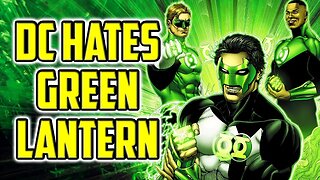MSNBC’s O’Donnell: New Hampshire Primary a ‘Very Bad Night for Donald Trump’
O’DONNELL: “So, I think one of the relevant frames to use in looking at what Trump achieved tonight and didn’t achieve is what Joe Biden achieved. Someone else came in second tonight. Dean Phillips, running against Joe Biden, is coming in second with 20% of the vote among the Democratic — the unofficial Democratic primary that they had there. The model that he had going into New Hampshire was Gene McCarthy in 1968 who won 42% of the vote against the sitting President Lyndon Johnson, who also had a write-in campaign. Johnson didn’t bother to have his name on the appellate, just like Biden. Both of them or ran unofficial write-in campaigns. So, Dean Phillips got completely crushed, didn’t come close to the threshold. If Gene McCarthy had gotten 20% in 1968, that would’ve been the end. No one would have talked about it again. Bobby Kennedy probably would’ve rethought his plan to get into the race after seeing how strong LBJ was. So, Joe Biden demonstrates this enormous strength in New Hampshire tonight. And then you have Trump showing much greater weakness against a credible challenger. And it depends on how you want to look at Trump. He wants to be called president in court and everywhere. So let’s call him president just for this moment. When a president is on the ballot in the New Hampshire primary, you’re supposed to win everything. You’re not supposed to face a serious challenge. And when you do, you lose. There is no president who faced serious challenges in the New Hampshire primary, who then won in November. So, this is a very bad night for Donald Trump, looking at the pattern of presidents in New Hampshire primary situations who faced very serious challenges.”
MADDOW: “So what we’re saying here is that he’s very likely to win the nomination. And the way that he’s winning shows him to be a very weak general election candidate.”
O’DONNELL: “He’s likely to win the nomination the way George H.W. Bush was still likely to win the nomination after Pat Buchanan went to New Hampshire and almost knocked him out. And then George H. W. Bush did win the nomination.”
MADDOW: “Yeah, he won the nomination and then got trashed.”
O’DONNELL: “The presidency was over.”
MELBER: “Yeah, to put it in a sentence, there’s a difference between being feared within your party and appealing or popular within the nation.”
Reid: “Yeah, absolutely. If New Hampshire is the avatar for what independent voters want and would choose given the option, given the fact that anyone could play in that independent side. Nikki Haley beat Donald Trump among independents by something like 40 percentage points. That is not a good sign for a sitting or former president of the United States, who, again, wants to be seen as president. Yes, he will beat her in South Carolina, but let’s not forget that one of the things that Joe Biden did was to remake the calendar such that he was not on the ballot in New Hampshire, still mopped up Dean Phillips in New Hampshire when he wasn’t even on the ballot, as a write-in candidate. Yes, Donald Trump will likely win South Carolina, Nikki Haley’s home state. Joe Biden might win it by more. Because that state is built for Joe Biden, just like on the Republican side it’s built for Donald Trump. So tonight, the winner, if you want to look at all of the metrics for a general election, the winner tonight is Joe Biden, who won in New Hampshire decisively as a write-in, who’s going to win decisively in South Carolina. And the story that Donald Trump thinks he’s going to get out of South Carolina, Joe Biden will get one of equal value to him. And in the end, he’s got a better story to tell in November because he’s not facing 91 criminal counts.”
MADDOW: “Yeah. Let me ask — and Steve Kornacki, I’d love to ask your advice on this. This isn’t about data from tonight, but it’s about sort of recent history in campaigns. One of the electability argument that’s being made on the Republican side is that it’s important for the Republicans to unify now, for them to end their primary now, that deciding on a candidate now gives them a better shot at the general election, gives them a better, longer runway in terms of what they want to line up against Joe Biden. When I think about that, Steve, I think about John Kerry wrapping it up quickly in 2004 and then losing to George W. Bush. I think about Hillary Clinton and Barack Obama battling right down to the very last second in 2008, thus making for a very short general election campaign in 2008, but one that the Democrats ultimately won. Is there any way that you think about it in terms of the lived history that we’ve got, of the primaries versus the generals, as to whether or not there is a case to be made that it might help the Republicans to have a nominee sooner rather than later?”
-
 4:03
4:03
Grabien
11 hours ago‘Morning Joe’ Defends Biden’s Fitness: Everything You See with Your Own Eyes Is ‘Debunked’ Misinformation
44 -
 17:25
17:25
Degenerate Jay
8 hours agoGreen Lantern Deserves Better
1.66K2 -
 LIVE
LIVE
Badlands Media
19 hours agoEye of the Storm Ep. 134 - 10:30 PM ET -
8,859 watching -
 LIVE
LIVE
SNEAKO
4 hours agoSECRET STREAM SECRET SURPRISE
4,898 watching -
 2:31:41
2:31:41
GruntStyleGaming
5 hours agoEnlisted: Featuring LumpyPotatoX2 - #GSPatrioticSummer
18.8K4 -
 7:59:24
7:59:24
FusedAegisTV
11 hours agoXIV TUESDAYS! I AM THE RUMBLE MASTER OF THE RUMBLE WARRIORS | Makin' Moves (6.3)
34.2K3 -
 44:33
44:33
The Anthony Rogers Show
14 hours agoEpisode 321 - Mickey Avalon
18.9K1 -
 1:32:11
1:32:11
Glenn Greenwald
9 hours agoMedia Converts Taboos About Ukraine Into Acknowledged Truths; Orthodox Rabbis on Condemning Israeli War; PLUS: Media Denies Biden’s Decline | SYSTEM UPDATE #284
68K196 -
 37:44
37:44
Candace Owens
6 hours agoEverything We Learned About World War 2 Is A Lie | Candace Ep 7
65.4K274 -
 42:09
42:09
The Late Kick with Josh Pate
8 hours agoLate Kick Live Ep 523: CFB 2024 Unknowns | Dabo Legacy Debate | Big12 Over Big Ten | Mon Title Games
36K1